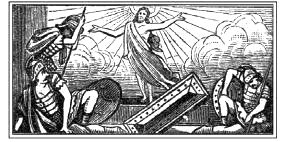Pope Pius XI, Officiorum Omnium, 1922
"For the Church, precisely because it embraces all nations and is destined to endure until the end of time... of its very nature requires a language which is universal, immutable, and non-vernacular."
Pope Pius XII, Mediator Dei
"The use of the Latin language prevailing in a great part of the Church affords at once an imposing sign of unity and an effective safeguard against the corruption of true doctrine."
Pope John XXIII, Veterum Sapientia, 1962
"The Catholic Church has a dignity far surpassing that of every merely human society, for it was founded by Christ the Lord. It is altogether fitting, therefore, that the language it uses should be noble, majestic and non-vernacular."
Second Vatican Council, Sacrosanctum Concilium, 1963
#36 "The use of Latin, with due respect to particular law, is to be preserved in the Latin Rites."
#54 "Nevertheless care must be taken to ensure that the faithful may also be able to say or sing together in Latin those parts of the Ordinary of the Mass which pertain to them."
Pope Paul VI, Sacrificium Laudis, 1966
"The Latin language is assuredly worthy of being defended with great care instead of being scorned; for the Latin Church it is the most abundant source of Christian civilization and the richest treasury of piety... we must not hold in low esteem these traditions of your fathers which were your glory for centuries."
John Paul II (27, Nov. AD. 1978, AAS 71 (1979) 45.)
Ad iuvenes ergo imprimis convertimur, qui hac aetate, qua litterae Latinae et humanitatis studia multis locis, ut notum est, iacent, hoc veluti Latinitatis patrimonium, quod Ecclesia maxime aestimat, alacres accipiant oportet et actuosi frugiferum reddant. Noverint ii hoc Ciceronis effatum ad se quodam modo referri: "Non ... tam praeclarum est scire Latine, quam turpe nescire".
Omnes autem vos, qui hic adestis, et socios, qui vobis opitulantur, adhortamur, ut pergatis nobilem laborem et attollatis facem Latinitatis, quae est etiam, licet arctioribus quam antea finibus circumscriptum, vinculum quoddam inter homines sermone diversos.
Scitote beati Petri in summo ministerio apostolico successorem incepti vestri felices exitus precari, vobis adesse, vos confirmare. Cuius rei auspex sit Apostolica Benedictio, quam vobis singulis universis libentissime in Domino impertimus.
John Paul II (26., Nov. AD. 1979, AAS 71 (1979) 1524.
Macte virtute et ingenio estote! Linguam Latinam, Romana maiestate et breviloquentia insignem, quasi ad sculpendum verum et rectum idoneam, ad acriter et logice cogitandum impellentem, diligenter colite et meditatis consiliis quoquoversus provehite! Contendite, ut, antiquorum praecepta secuti, semper dilucide et plane et, cum res fert, ornate et numerose, apte et congruenter dicatis Latine atque scribatis.
Denique divina auxilia vobis precantes, Benedictionem Apostolicam amantissime impertimus.
Code of Canon Law
Can. 249 - Institutionis sacerdotalis Ratione provideatur ut alumni non tantum accurate linguam patriam edoceantur, sed etiam linguam latinam bene calleant necnon congruam habeant cognitionem alienarum linguarum, quarum scientia ad eorum formationem aut ad ministerium pastorale exercendum necessaria vel utilis videatur.
Can. 249 - The program for priestly formation is to make provision that the students are not only carefully taught their native language but also that they are well skilled in the Latin language; they are also to have a suitable familiarity with those foreign languages which seem necessary or useful for their own formation or for the exercise of their pastoral ministry.
Can. 928 - Eucharistica celebratio peragatur lingua latina aut alia lingua, dummodo textus liturgici legitime approbati fuerint.
Can. 928 - The Eucharist is to be celebrated in the Latin language or in another language provided the liturgical texts have been legitimately approved.
| 

